As tourism drops and the construction of Israeli settlements continue, Palestinian Christians are under extreme pressure, says Embrace the Middle East’s Dr Ruth Valerio
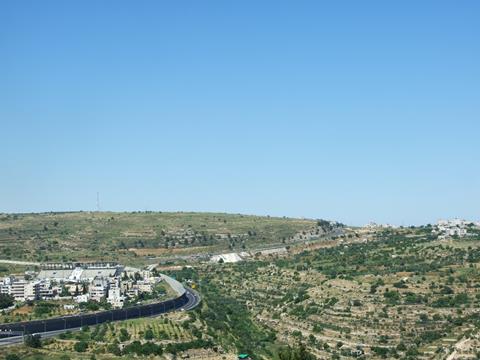
Do you know where Bethlehem is? Or Jericho or Hebron?
They are names so familiar to us from the Bible that they almost sound mythical and it can be a surprise to remember that they are real places today. Even more surprising can be the realisation that they are all in the West Bank – a place we hear about on the news.
I have recently returned from the West Bank, as well as Israel and Jordan, meeting some of our partners, hearing from them and seeing their work. And I have to say it’s been a challenging and sobering time.
A shattered economy
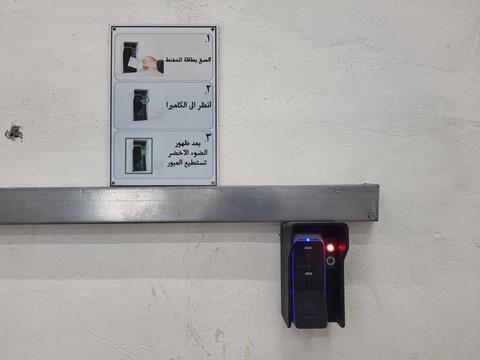
My first day there, arriving on the bus from Jerusalem with Embrace CEO Jamie Eyre, takes us to Checkpoint 300, where we are dropped off on the West Bank side. We walk past the little machines on the wall that Palestinians use when they return to the West Bank from Jerusalem. They have to apply for a special permit to travel outside the West Bank into Israel and then check back in when they return so the Israeli authorities can keep track of their movements, something Israel argues is necessary for their national security.
We walk along a covered concrete corridor, through a turnstile and out into the bright sunshine of Beit Jala in the Bethlehem governorate, the separation wall that partitions the West Bank from Israel stretching away from us to our right. There we are surrounded by yellow taxis and friendly drivers trying to get our business.
Since the start of the Gaza war in October 2023, tourism has collapsed throughout Israel and the West Bank, destroying the Palestinian economy and meaning many families are now struggling to survive and meet their daily needs, not able to afford to pay for education or healthcare.
The other big segment of the Palestinian economy – jobs in Israel – has also collapsed following Israel’s decision to cancel work permits for hundreds of thousands of Palestinians, compounding the problem. Now, workers from Thailand have replaced the Palestinians, and on a Saturday when things close for Shabbat, central Jerusalem is full of the three-wheeled bikes they use, as they get together to enjoy their day off.
It is heart-wrenching when we go to Bethlehem and wander around Manger Square and the Church of the Holy Nativity. It is almost totally deserted. We walk along a street full of closed tourist shops and tour guides beg us to let them show us round, telling us how much they need the money, that they can’t feed their families anymore.
The number of Christians living in the West Bank has dwindled over the past few decades. It is estimated that only 1% of the population in the West Bank are Christians. Despite their small size though, the Christian community continue to play an incredibly important role in serving and improving the lives of those around them, particularly in the areas of health, education and community development. Church related organisations serve an estimated 1.9 million Palestinians a year, the majority of whom are non-Christians, and they are one of the largest providers of employment for Palestinians. During this time of crisis, Christian-led organisations have continued to respond amazingly to the needs they see around them.
As the economic crisis has deepened over the past 18 months, our partner, Pontifical Mission for Palestine, has been responding by providing jobs for some of those who are unemployed, providing income for them and their families as well as needed support for local businesses and institutions. The project provides a critical lifeline for these families. However, unless the root causes of the economic crisis are addressed, the downward spiral of the economy will continue.
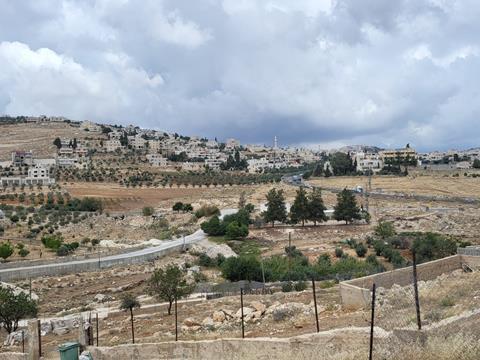
A changing landscape
Over the next few days, we drive around the area and notice the massive road-building programme that Israel is undertaking. Jamie, who has been here before, can hardly believe how much is changing – and how quickly.
The roads are being built alongside large blocks of houses you see dotted around the hillsides that are taking over Palestinian land. Standing on a hillside looking out, I ask one of our partners how to tell the difference between Palestinian and settler homes. Water is the answer. Palestinian homes have huge water containers on their roofs as water supply is intermittent and they need to collect as much as they can, when they can. Israeli settlers are allowed to build houses with their own water supply so don’t need anything on their roofs. Because of this, settler areas are green and lush; Palestinian areas dry and brown.
Not being able to move and travel freely has become a huge issue for Palestinians in the West Bank and a story of daily frustration. There are now around 850 Israeli ‘movement obstacles’ in the West Bank, a third of which are road gates which are frequently closed. The Israeli authorities use these gates to close a road whenever they want, with no warning, sometimes for security reasons. Residents are now part of online communities where people provide constant narratives on when a road closes. A journey you thought was going to take 20 minutes suddenly takes 90. One partner told us of driving from Jenin to Nablus – a distance of just 22 miles but it took five hours because of road closures and long queues at checkpoints. You could feel the frustration in every conversation we had with our partners. It was impossible to ignore.
The injustice of it is something that our partner, the Society of St Yves, also refuses to ignore. On a daily basis they are challenging these movement restrictions and working to ensure that Palestinians in the West Bank have freedom of movement, a human right most of us take for granted. They provide legal counsel to Palestinians with travel bans who are denied permission to leave the West Bank and also raise public interest cases to have the checkpoints removed. For them this is not just about movement. It’s about dignity, about access, about the ability to live a full human life.
The new roads being built will be for the use of settlers. The Israeli authorities are also building roads that will go around or under settler communities which will be for the use of Palestinians, thus keeping them apart. Settler communities are growing alarmingly. They take land that has been in Palestinian families for generations, often violently but rarely facing the consequences. International law is clear: the settlers are there illegally, and yet no one in the international community is doing anything to try to prevent it.
Pressing on – despite harassment
One day, as we go back to Jerusalem across the checkpoint, going through the usual procedure of passport checking before being allowed back on the bus, we see two young Palestinian men pulled out of the queue. I can see where they get taken and I watch as they are made to stand against a wall, with their arms and legs spread against the wall and their faces pressing into it. They are searched, as are the contents of their bags which are tipped onto the ground. When the young men get back onto the bus, their clothes are dirty, and they wearily dust themselves off before settling back into the rest of their day. We see similarly in Jerusalem too – young Palestinian men randomly pulled aside on the streets by the police and searched.
Each person we spend time with, drinking coffee and eating falafel, tells us of the psychological toll it takes to keep going in a system which grinds you down. And running through it all is the constant trauma of watching the death and ruthless destruction of their people in Gaza.
Resistance, resilience and solidarity
This systematic oppression makes the work of our partners increasingly difficult. Travel around the West Bank is dangerous and unpredictable. The economic crisis is increasing pressure on expenditure while the needs of those they serve are increasing.
It is within this context that our Christian partners continue their amazing work: providing healthcare; rehabilitation for children with disabilities; giving psychosocial support to young people traumatised by the political violence they experience; working with olive farmers who face aggression from settlers when they go into their fields to work their land; training young Christians with leadership potential; and giving legal advice to Palestinians facing discrimination.
In the midst of a devastating war and a land caught in perpetual cycles of violence, our Christian partners are loving their neighbours. Their response to oppression, violence and injustice is not to respond in kind, but to go to those who are most affected and impacted by it and respond to them with compassion. The Christian presence in the Holy Land is not only important for symbolic reasons but because they play an incredibly important role in the work for justice, reconciliation and healing, as they put the gospel into practice.
It is difficult to speak of hope in these days but the work itself is a source of hope: a beacon of light in darkness. It’s a sign of resistance too, of resilience and a determination not to give in.
Our partners tell us how much our visit means to them. The word ‘solidarity’ is used over and over again, and one person tells us, “You have been a powerful source of strength and comfort – more than words can truly express.”
As Embrace the Middle East we have the privilege of showing solidarity with our partners through these visits and although we can’t all do the same, we all have the opportunity to show solidarity. As Christians in the UK we can do this by advocating on behalf of Christians in Palestine and calling on those in power to have the moral imagination to address the root causes of the conflict and work towards a brighter future. Through our giving and praying we can partner together with our brothers and sisters as they shine a light in the darkness.
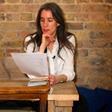













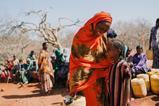
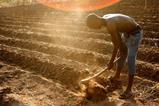
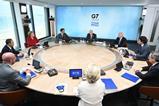





















No comments yet